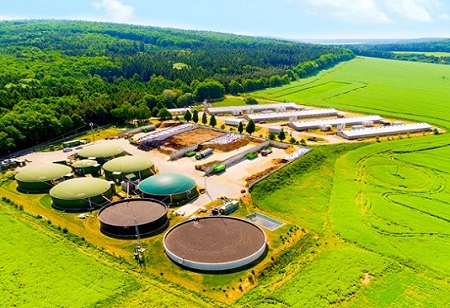Compressed biogas (CBG) and bio-CNG (B-CNG), both of which can be used in place of compressed natural gas in CNG-powered vehicles, will soon be sold at Jio-bp, a fuel retail joint venture between Reliance Industries and British oil firm BP. According to insiders, the corporation will first sell CBG and B-CNG at its locations in western India before expanding to other locations.
Jio-bp responded via email: "Jio-bp is currently working to set up CBG/bio-CNG retailing at its collocated petroleum retail outlets, and our first store is likely to come up shortly." According to the business, Jio-bp will convert more and more clients to B-CNG in line with its environmental principles. According to the statement, "We are well along in integrating our supply chain network for supply security. Rates will be set by long-term contracts that will be signed with all CBG suppliers, taking into account the interests of every stakeholder throughout the value chain.
Compressed biogas is a sustainable fuel made from waste and biomass. This mixture is known as bio-compressed natural gas, or bio-CNG, when it has been further treated and purified. Both are comparable in calorific value to CNG and can be used in commercial, industrial, and automotive
applications. There are now over 30 CBG facilities operating in India. Industry insiders predict that over $2 billion in investments will be made in the area over the next 5 to 7 years. Reliance Industries is to invest up to Rs 600 crore in the construction of 40 mmtpa of biogas facilities in Gujarat and Uttar Pradesh. RIL Chairman Mukesh Ambani announced the company would launch a new bio-energy venture in Uttar Pradesh at the beginning of this month. The availability of feedstock at fair rates on a sustainable basis is one of the key determinants of CBG pricing. Presently, CBG and CNG are marketed at the same price throughout much of the nation. This policy is in keeping with the Satat, or Sustainable Alternative Towards Affordable Transportation, programme pushed by the Center.
The government proposed an ambitious aim to produce 15 million metric tonnes of CBG annually, or nearly 40,000 tonnes per day, via the Satat system. With an average plant weight of 8 tonnes, the nation would require 5,000 plants to reach that goal. The national coordinating organisation for the development of CBG plants is Indian Oil Corporation (IOCL). For 1,550 CBG plants, the state-owned refiner has already signed preliminary contracts with firms like Adani Gas, Torrent Gas, and Petronet LNG. IOC has started selling CBG in a few locations under the IndiGreen brand, and it has granted letters of intent (LOIs) for the construction of 325 units that will produce 0.78 mmtpa of CBG.
Biogas has a methane content of up to 60%, a carbon dioxide content of 40–45%, and traces of hydrogen sulphide. CBG is prepared by purifying it to eliminate carbon dioxide and hydrogen sulphide gases, and it is then delivered to retail locations by pipes or cascades of cylinders. The government will enforce a 5% CBG for all organisations marketing natural and biogas, according to finance minister Nirmala Sitharaman's statement in the FY24 budget. When combined with natural gas, CBG is also exempt from central excise duty.
In the email answer, Jio-bp said, "Introduction of 5% CBG is a positive measure by the government to ensure supply security assurance, stimulate energy security, and lessen import of fossil fuel-based energy, including LNG, in addition to bringing the country towards Atmanirbhar Bharat.
